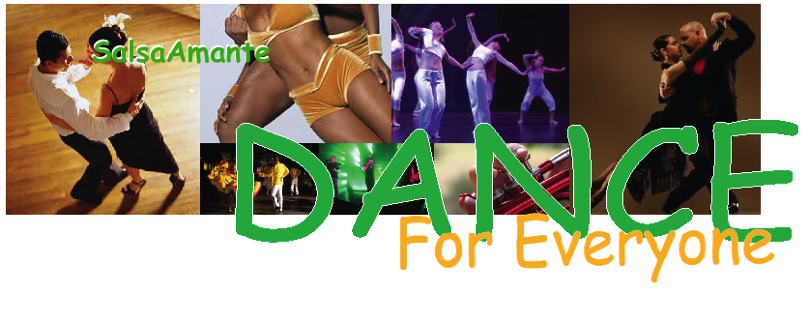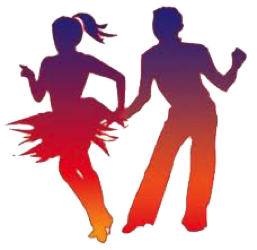

Help us to keep
this site alive
Advertise on our
site or give us a
Donation
Your
Banner
More Salsa
info on
Wiki Pedia
Salsa music is a popular style of Latin American music. Because most of the basic musical componentes predates the labeling of salsa, there have been many controversies regarding its origin. Most songs considered as salsa are primarily based on son montuno, with elements of mambo, Latin jazz, bomba, plena and guaracha. All of these elements are adapted to fit the basic son montuno template when performed within the context of salsa. Originally the name salsa was used to label commercially several styles of Latin dance music, but nowadays it is considered a musical style on its own and one of the staples of Latin American culture.
The first self-identified salsa bands were predominantly assembled by Cuban and Puerto Rican musicians in New York in the 70s. The music style was based on the late son montuno of Arsenio Rodriguez, Conjunto Chappottín and Roberto Faz. These musicians include Celia Cruz, Rubén Blades, Johnny Pacheco, Machito and Hector Lavoe. During the same period a parallel modernization of Cuban son was being developed by Los Van Van, Irakere, NG La Banda, Charanga Habanera and other artists in Cuba under the name of songo and timba, styles that at present are also labelled as salsa. Though limited by an embargo, the continuous cultural exchange between salsa-related muscians inside and outside of Cuba is undeniable.
History

Origins of the term Salsa
Graciela on claves and her brother Machito on maracas; Machito said that salsa was much like what he had been playing from the 1940s.
The word Salsa means sauce in the Spanish language. The origin of the connection of this word to a style of music is disputed by various music writers and historians.
The musicologist Max Salazar believes the origin of the connection lies in 1930 when Ignacio Piñeiro composed the song Echale salsita (put some sauce in it). The phrase is seen as a cry from Piñeiro to his band, telling them to increase the tempo to "put the dancers into high gear". Later on, while based in Mexico City, the musician Beny Moré would shout salsa during a performance to acknowledge a musical moment's heat, making a connection with the hot salsa (sauce) made in the country. Latin music promoter Izzy Sanabria claims he was the first to use the word salsa to denote a music genre. In 1973, I hosted the television show Salsa which was the first reference to this particular music as salsa. I was using [the term] salsa, but the music wasn't defined by that. The music was still defined as Latin music. And that was a very, very broad category, because it even includes mariachi music. It includes everything. So salsa defined this particular type of music ... It's a name that everyone could pronounce
while based in Mexico City, the musician Beny Moré would shout salsa during a performance to acknowledge a musical moment's heat, making a connection with the hot salsa (sauce) made in the country. Latin music promoter Izzy Sanabria claims he was the first to use the word salsa to denote a music genre. In 1973, I hosted the television show Salsa which was the first reference to this particular music as salsa. I was using [the term] salsa, but the music wasn't defined by that. The music was still defined as Latin music. And that was a very, very broad category, because it even includes mariachi music. It includes everything. So salsa defined this particular type of music ... It's a name that everyone could pronounce
Graciela on claves and her brother Machito on maracas; Machito said that salsa was much like what he had been playing from the 1940s.

History

Dance
Salsa dancing — as a dance to accompany salsa music — was popularized in the 1960s. It was primarily developed by Puerto Ricans and Cubans living in New York in the late 1960s and early 1970s. Different regions of Latin America and the United States (including countries in the Caribbean) have distinct salsa styles, such as Cuban, Puerto Rican, Colombian, and New York styles. Salsa dance socials are commonly held in nightclubs, bars, ballrooms, restaurants, and outside, especially when part of an outdoor festival.
Some debate exists about the exact origins of the name "salsa". Some claim it originated from something musicians shouted while playing to generate excitement. The term was popularized by the record label Fania Records to better market their music, and Fania founder, Johnny Pacheco, says he chose the word "salsa" because of its spicy and hot connotations. Whatever its origin, the term is fitting. Salsa dancing and music are a mixture of styles, just like salsa or "sauce" in Latin American countries is a mixture of ingredients. Originally a street dance, salsa dance steps were more formalized once schools opened up teaching how to dance salsa with a set curriculum. One of the early influential instructors in salsa was Eddie Torres, who helped formalize the timing for New York-style salsa, and popularized the style around the world.






